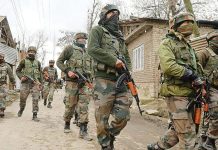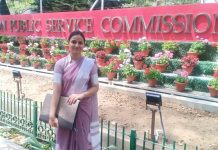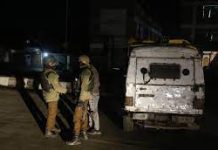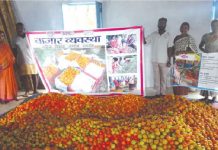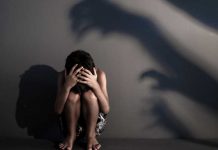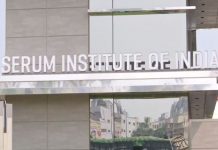
While the Congress high command is struggling to limit the damage being caused by the factionalism in party’s Punjab unit, bickering has come to fore in Haryana amid the party’s state and district committees formation which is taking place after over seven years, reports RAJESH MOUDGIL
The on-going process to constitute the Haryana Congress’ state and district committees has triggered what was feared and quite anticipated — factionalism within the party coming out in open.
Of the total 31 Congress MLAs in the Haryana, about 22 legislators, including former chief minister Bhupinder Singh Hooda, have met party general secretary K C Venugopal as well as state affairs in-charge Vivek Bansal in Delhi, seeking a say in the formation of the state and district bodies and also a key position for Hooda in the party affairs.
In the House of 90, the ruling Bharatiya Janata Party has 40 legislators, its ally Jannayak Janta Party (JJP), 10, Congress 31, seven independent MLAs while Indian National Lok Dal’s (INLD’s) sole MLA Abhay Chautala has recently resigned in protest against the farm laws while there is also one MLA of Haryana Lokhit Party (HLP).
While Congress is the principal opposition party in the state assembly, Hooda is the leader of opposition (LoP) and the former Union minister and Rajya Sabha member, Kumari Selja is the president of the party in the state. While she is a Dalit leader, several of the MLAs, especially from Jat belt of Sonepat, Rohtak and Jhajjar, side with Hooda, a Jat leader.
Even though the assembly elections in the state are three years away, the immediate trigger causing the fissures in the party state unit is the on-going formation of the state and the district committees of the party which is taking place after more than seven years when the Hooda camp is keen to have a say so as to consolidate its base to wrest its supremacy in party affairs.
It may be recalled, the state units were dissolved after the then party chief Ashok Tanwar took over as the party state unit chief in 2014. However, though he parted his way from the party subsequent to the bad blood between him and Hooda in 2019, the state and districts had thus remained without office-holders since.
However, importantly enough, the party fought the 2019 election under the leadership of Hooda without party state and district bodies, and improved its performance significantly — from 15 MLAs in 2014 to 31 in 2019. A greater role in the party affairs was also espoused in the backdrop of ongoing farmers’ agitation and changes in the political dynamics in the state after the recent release of INLD supremo Om Prakash Chautala from jail.
Even though Kumari Selja was appointed as party state chief in September, 2019, it is now that the party has now decided to form the state and district bodies. The process for the same is currently underway and hence, with it the lobbying for prime posts among the warring camps in the party state and district units.
Importantly, not only Hooda and Selja camps are keen to have prime posts for the obvious political reasons in the current rejig exercise, there are a few others such as Kiran Chaudhry, Randeep Surjewala and Capt Ajay Yadav, too, who would also like to have their own scores settled in one way or the other.
Notably, even though the party central leadership did get in touch with Hooda about the committees, he, but, was consulted and his feed-back taken only for three districts and — much to the chagrin of Hooda camp — not for the entire state.
Some of the legislators who did not want to be named held that the central leadership was told that it must take in its consideration the fact that it was Hooda who had led the party well and strengthened its organisation in spite of the absence of any Congress committees in the state. Hence the demand for a strong leadership for the party in the state and a greater say of legislators in organisational matters.
According to media reports, Hooda has, however, categorically said he had not demanded to be the state party chief. Refusing knowledge of what the legislators had told the central leadership, he asked had he wanted to be the state party chief he would not have become the Congress legislature party (CLP) leader in the state assembly.
The 22 MLAs who have met Bansal and Venugopal included B B Batra, Geeta Bhukkal, Raghuvir Kadian, Kuldeep Vats, Varun Choudhary, Bishan Lal Saini, Aftab Ahmed, Rajinder Joon, Neeraj Sharma, Mewa Singh and Jagbir Malik. They had gathered at Hooda’s residence before leaving for the All India Congress Committee (AICC) headquarters in Delhi.
Most of them said that they conveyed to the central leadership that they wanted to be consulted for the appointments in the party’s state and district committees and to have a say for the same, besides discussing some other political issues. Some of the MLAs also said that the forthcoming local bodies and panchayat elections were also discussed with them.
Some other legislators held that they discussed organisational matters pertaining to the state unit, political situation in the state in the backdrop of ongoing farmers’ agitation and upcoming panchayat polls. However, Bansal held that the meetings were held as the MLAs had not met for a long time due to the pandemic it was decided to take their feedback about the political situation in Haryana and seek their suggestions about the party’s organisation. He said they also shared their concerns and aspirations over the likely appointments in the districts and at block level.
The MLAs told newspersons that they had been assured by the central leadership they would not be ignored while deciding upon formation of the state and district bodies and that they would be taken into confidence.
Absolutely fine: Selja Kumari Selja, however, maintained that the party was absolutely united and strong. She added that it was perfectly fine on the part of the MLAs to seek to have a say in the formation of the said committees.
And that was also exactly what the party central leadership did by giving them a patient hearing and assuring them that they would be consulted during the formation of the said committees, she said.
To the question if there are any differences within the party, she held that there always are some people in a party who would like to have something and some others wanting to have something else. But, the strength of a party is to discuss all such issues and arrive at a consensus, she added.
tehelkaletters@gmail.com

